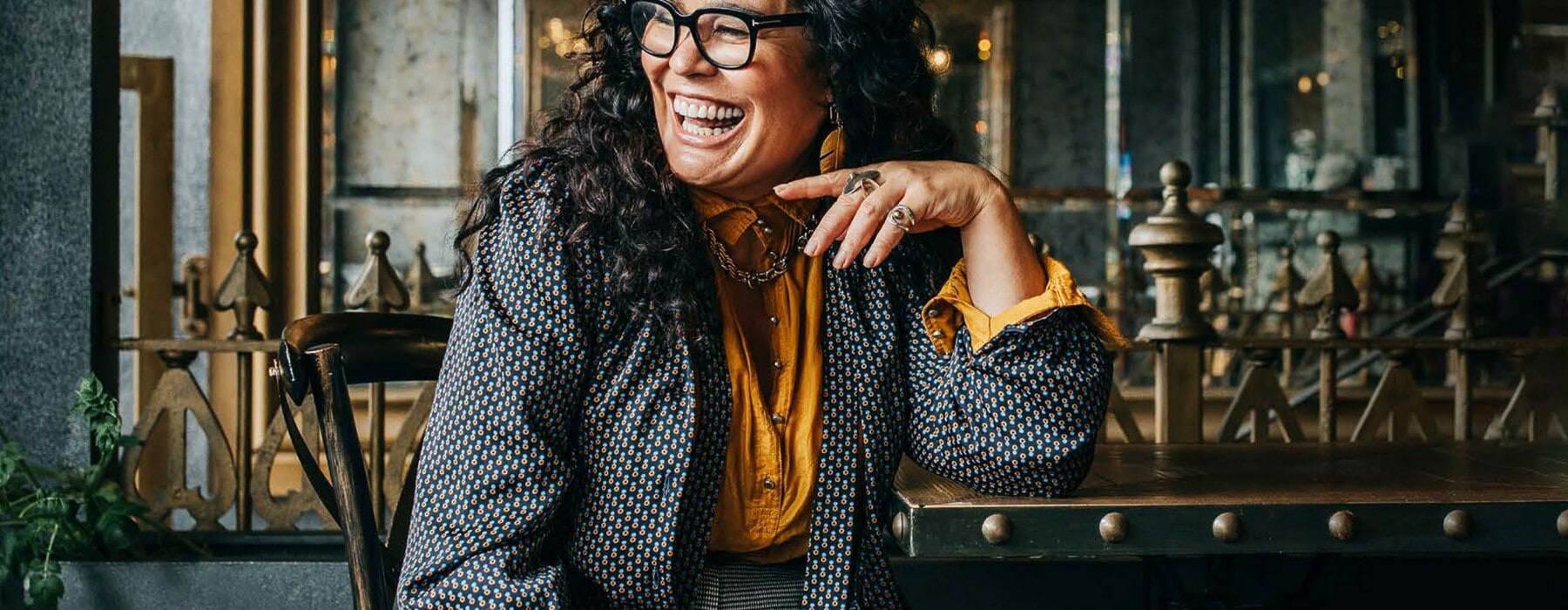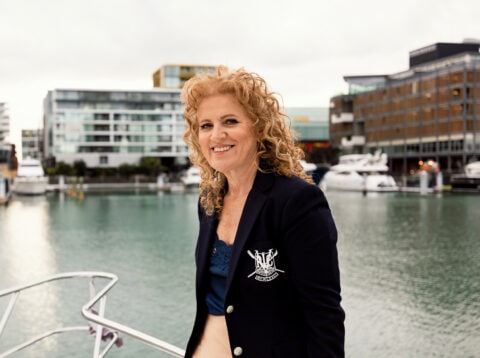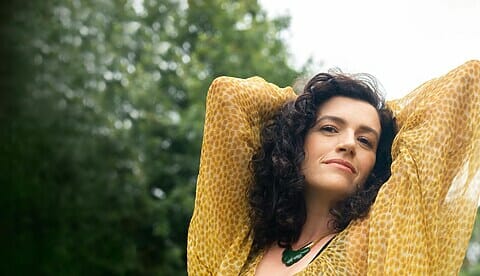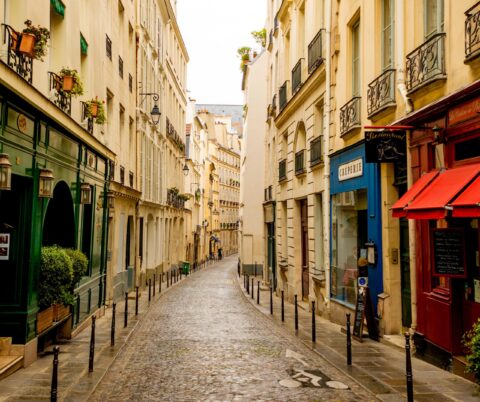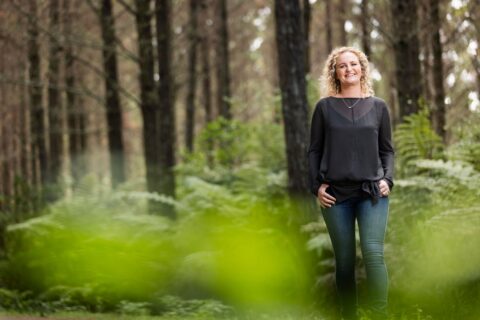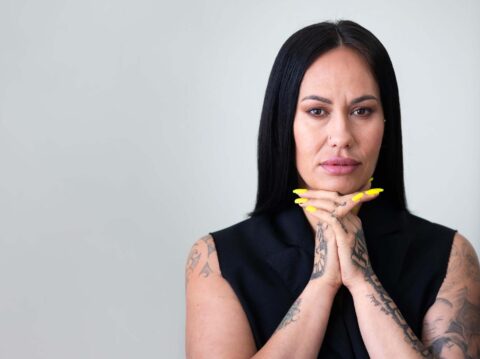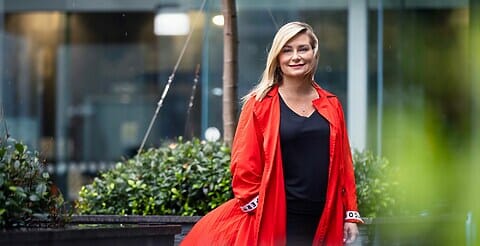Acclaimed Kiwi actor Rachel House is now lending her support to a cause close to her heart. She tells Siena Yates how confronting past trauma has given her life new direction.
Rachel House is not a tall woman but her energy takes up a lot of room – in the best way.
She strolls in with an aura of high energy and consults with the stylist dressing her for our photo shoot. No frocks and heels here – she’s a trousers and shirt kind of woman. She does have a mean pair of kicks though.
When we meet, she greets me like an old friend, having somehow remembered me from an interview back in 2016. Not only that, she remembers exactly what we discussed and details I’d barely expect a family member to recall after four years. I quickly discover that, while she may be an international success who rubs shoulders with Hollywood’s elite, she’s still just Rachel; a person who cares about people.
Sitting across from her feels surreal because her face is so incredibly familiar, partly by virtue of having graced our screens so often, but also in how warm and expressive it is.
There are multiple times when she says more with a look than a sentence and her smile is impossible not to mirror. It’s often so wide it pinches the corners of her eyes so they close in delight.
It’s a face that’s so well known, if you were to show anyone a photo of her, they’d recognise her right away. It’s the same story with her deep, sexy, lounge-singer voice – not to mention her contagious, room-filling laugh.
Her name, however, might be less well known, because unlike most actors and performers, she’d prefer to stay spotlight-adjacent.
Her most recognisable roles are “supporting roles”, yet she’s a seasoned scene-stealer and is often responsible for some of the most memorable moments in the productions she appears in, purely by virtue of being her.
Think Topaz in Thor: Ragnarok, Gramma Tala in Moana or Paula in Hunt for the Wilderpeople.
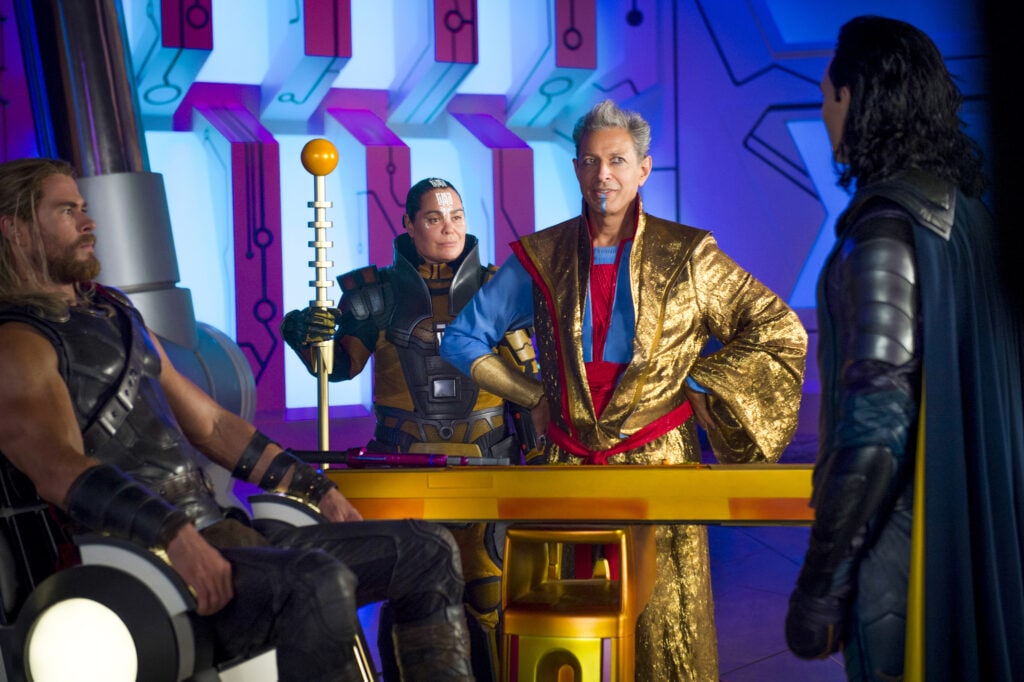
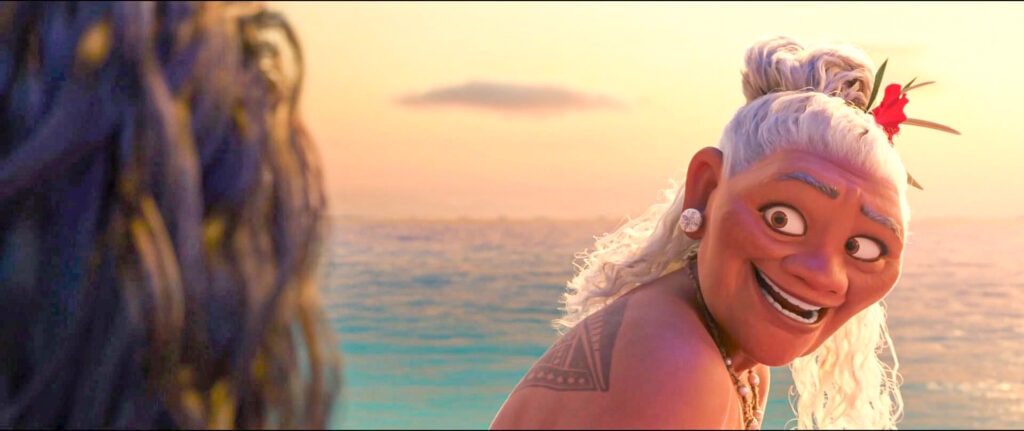
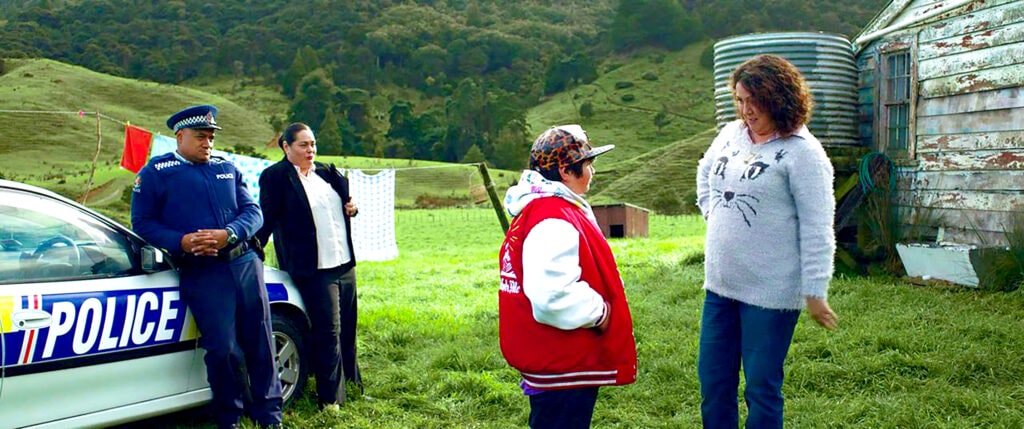
Hell, she can even make an ASB ad jump off the screen. Which may be why, despite being a supporting actor, she’s highly sought after, well regarded and one of this country’s most prolific performers.
Rachel, 49, is so good and so distinctly unique that her latest role – based on a real person who’s still very much alive – was written for her because the director knew what energy and personality she would bring to the film.
She plays kayak instructor Gaye Hatfield in new Aussie flick Penguin Bloom. In this true story, Gaye helps another woman, Sam Bloom (played by Naomi Watts), out of an incredibly dark place after a fall breaks Sam’s back in two places, leaving her paralysed from the chest down.
“I’m barely in it!” Rachel laughs, her eyes crinkling. But the scenes she does have are some of the film’s most pivotal and memorable.
In one, Gaye threatens to dump Sam into the water, saying, “You’ve still got arms,” and contorting her face into a wordless “I dare you” expression.
In another, she holds Sam in the water and the pair sing to celebrate simply being alive. It’s a scene that Naomi, the film’s star and producer, counts as one of her favourites – the actors improvised the whole thing based on their special connection.
Naomi is one of many Hollywood stars who now consider Rachel a close friend. “I absolutely love her. We just connected – she was a beam of light,” says the Aussie A-lister.
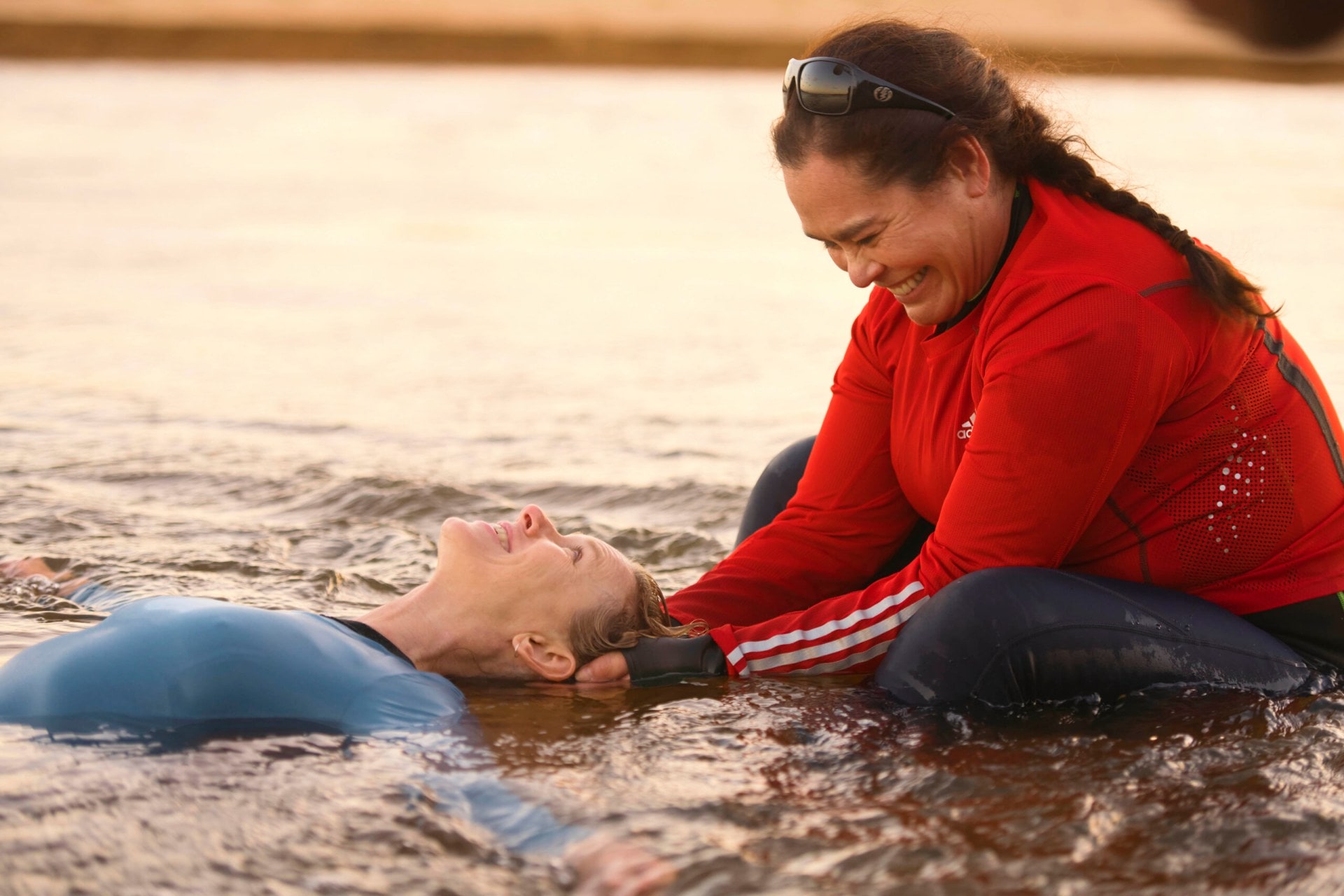
Similarly, the film’s director Glendyn Ivin was hugely impressed, not just with the humour and fun Rachel brought to the table but the emotion and heart she carries. “Whenever she was on set, not only I, but the whole crew were laughing,” he says. “I love her and audiences love her.”
Being able to bring that energy to a project is one of the reasons Rachel genuinely adores playing supporting roles.
“The thing is, I’m a director and I’ve also been writing scripts lately and I’m really interested in bringing together all the elements of a good story, whether it be in film or television. There is this assumption that the supporting roles aren’t as important, but the supporting roles are the ones that really aid and guide the central protagonist in their journey. So there’s this nice, compassionate, empath sort of thing about that and I really, genuinely do like that. You’re helping someone in their journey.”
That’s something Rachel aims to do for herself as well. Since working on Penguin Bloom, life has thrown Rachel a curveball that’s inspired her to take a new direction.
“During lockdown with the Black Lives Matter movement and in turn the BIPOC [black, indigenous and other people of colour] and indigenous movements, I think what happened to me was… it was like I had PTSD,” she says, hesitantly.
The hesitation isn’t new, but she and many others, she says, are finding the courage to speak about racism thanks to the safe spaces and support those global movements provided this year.
“I was having flashbacks of racism almost daily. Flashbacks of Kamo, Whangarei [where she grew up with her adopted Glaswegian parents John and Sheila House].
“Racism was definitely there. There was just this very pervasive, ‘you will fail because you’re Māori’, and in turn, there was a feeling of shame. You were made to feel ashamed of being Māori because there were all these assumptions and expectations around what that meant.”
Being adopted didn’t help matters either, but not because her parents were Pākehā. Her mum made an effort to learn Māori history and te reo, and kept the whānau entrenched in the culture through her ties in the Māori Anglican church. The real trouble was that Rachel didn’t know her whakapapa.
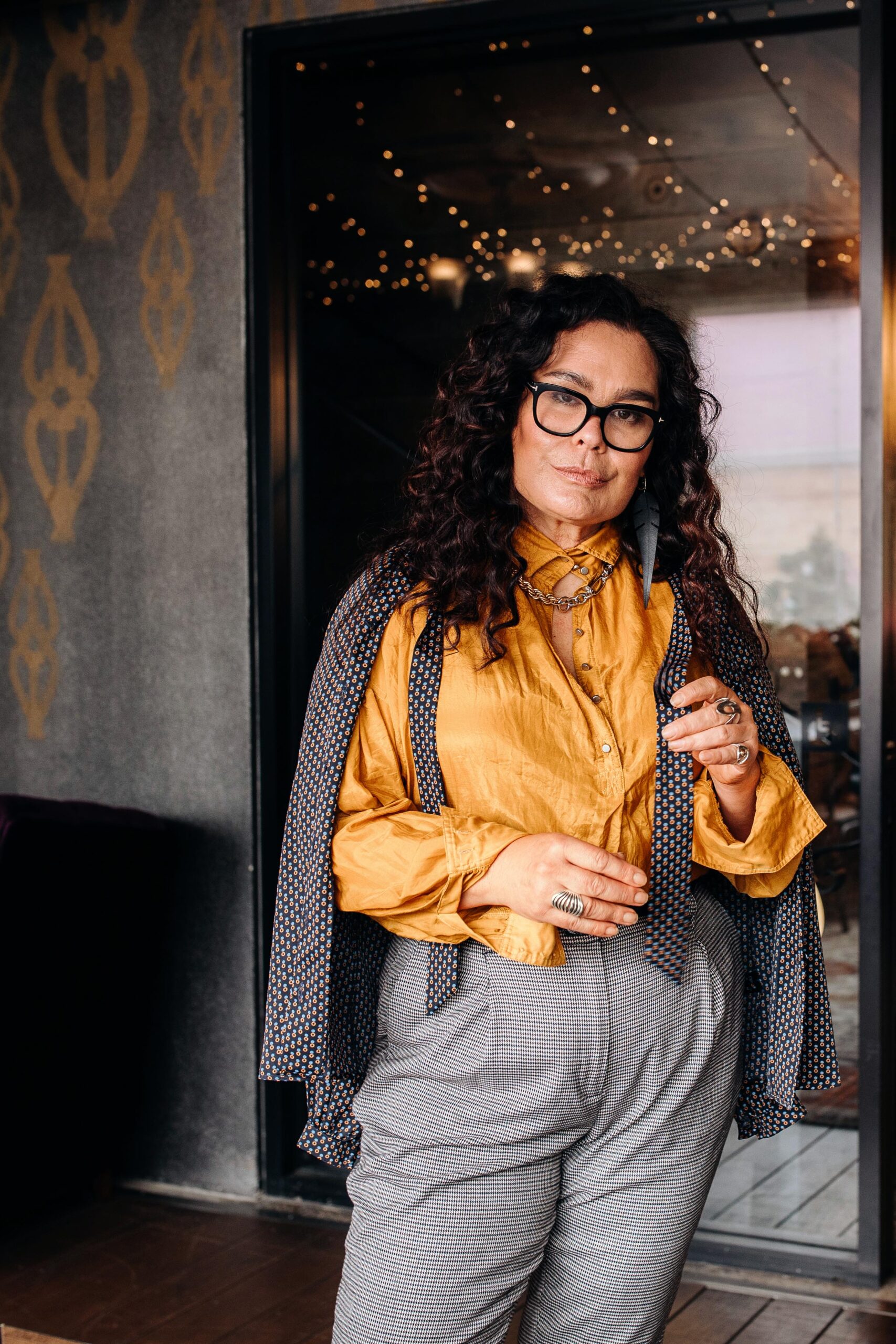
“I didn’t have my identity,” she says, because her birth mother “didn’t really want any contact”.
It wasn’t until she was 30 that Rachel made a breakthrough. “I went through some agencies who contacted her and tried to explain what it is to not know your whakapapa and she finally gave me my identity. I had my Pākehā identity, of course, but that wasn’t the side I was most missing. There were lots of turgid years of longing and yearning and misery. It really sucked.”
Experiencing it once was bad enough, but dealing with the flashbacks over lockdown added another layer to that past trauma which, while it “wasn’t great”, actually turned out to be a good thing.
“It was cathartic because you just have to work through that,” she says. “I feel like I’ve been through a lot of phases over my life and I’ve definitely been through the angry phase a couple of times and I don’t want to go back to that. I’d like to be much more constructive with that anger and with that sadness. Find solutions.”
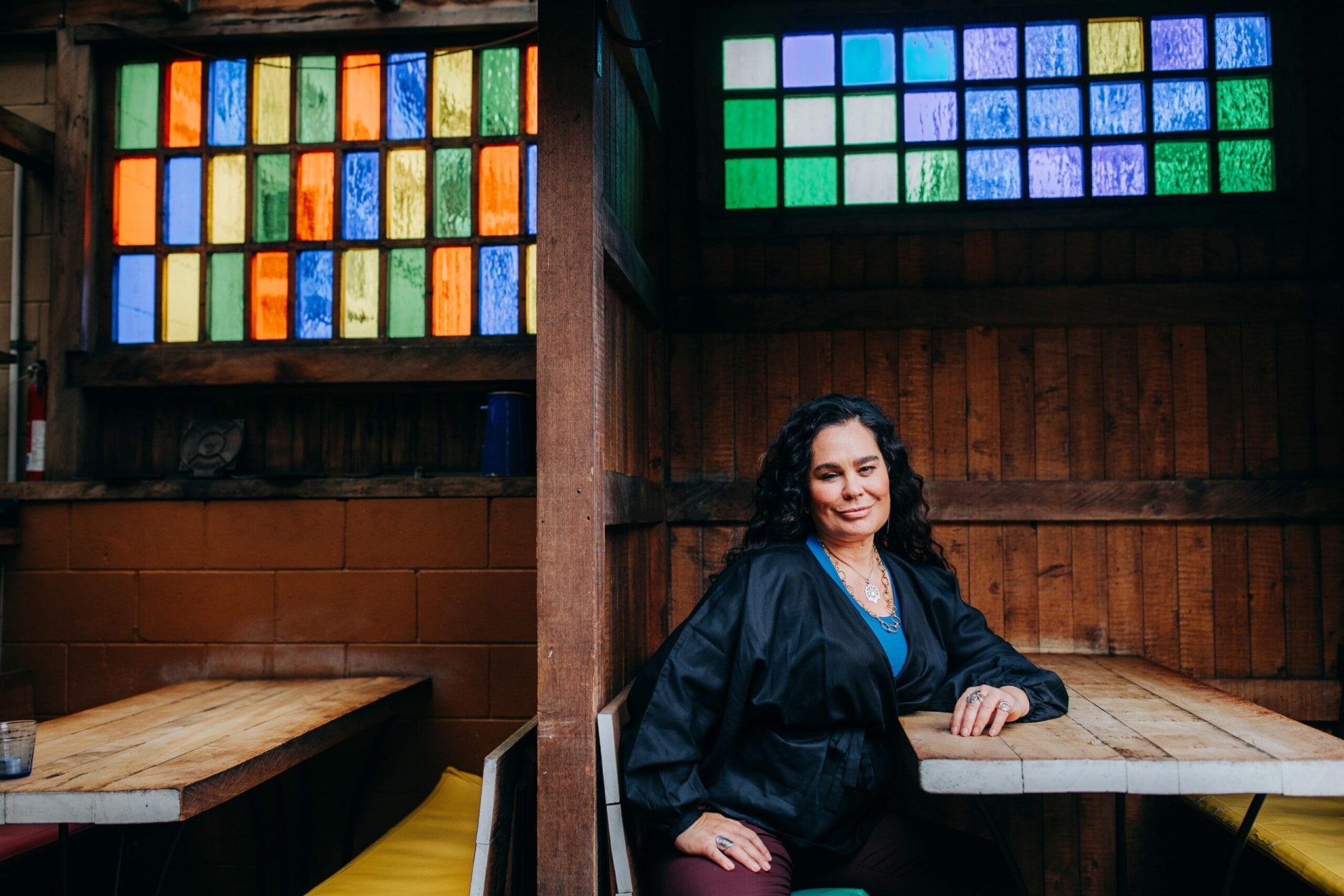
PHOTO CREDIT EMILY CHALK.
Good for the soul
That’s manifested itself in myriad ways. One of Rachel’s most recent projects was working on Disney’s new animated feature, Soul, which she was drawn to because of its inclusivity of black and indigenous cast and crew.
Closer to home, she’s been channelling those feelings into her work with the help of friends and longtime collaborators such as Stephen Tamapara, Carthew Neal and Cohen Holloway, working with themes of decolonisation and the sharing of indigenous knowledge; mātauranga Māori.
One project delves into the kind of internalised racism Rachel was made to feel as a kid.
“It’s been a wonderful release to get to the bottom of that; where that shame comes from, why we turn against our culture. It’s clear there’s a very dominant, Western gaze that we’re absolutely surrounded by,” she says.
“But what’s so wonderful in terms of what’s going on right now is that I’ve got some of my very close friends who are organising decolonisation wānanga all over the place and I think that’s a movement happening all over the world, so I’m super excited about that.”
Those decolonisation efforts, particularly among the younger generations, are the driving force behind another project she’s working on, which will focus on mātauranga Māori and showcase a side of Māoridom that most people have no idea about.
“I’ve been hanging out with people in their early twenties and it’s just a joy,” she says, with another eye-crinkling grin. “You know, how free they are when it comes to gender, sexuality, what they want to do in the world, how they perceive people, how they interact with people, it makes me quite emotional.”
She recalls seeing one rangatahi in particular who challenged Sir David Attenborough on social media regarding his latest documentary film, A Life on Our Planet, simply pointing out that his solutions to the climate crisis were the same as what indigenous knowledge has taught for generations.
“I’m working with people at the moment writing about that,” says Rachel. “How we have to change perspective and change the narrative of how our people are presented in stories; so not gang members, not victims, not abusers. People who aren’t familiar with Māori communities have no idea of the beauty of us, because what we see on our screens is the other, the colonised, version of us.
People who aren’t familiar with Māori communities have no idea of the beauty of us
“There’s this kind of hunger to share mātauranga Māori and I think something that I’ve just got my head around, having been in the presence of a few tohunga [experts] this year, is that their philosophy is really clear: if you don’t share [this knowledge], we’ll lose it.”
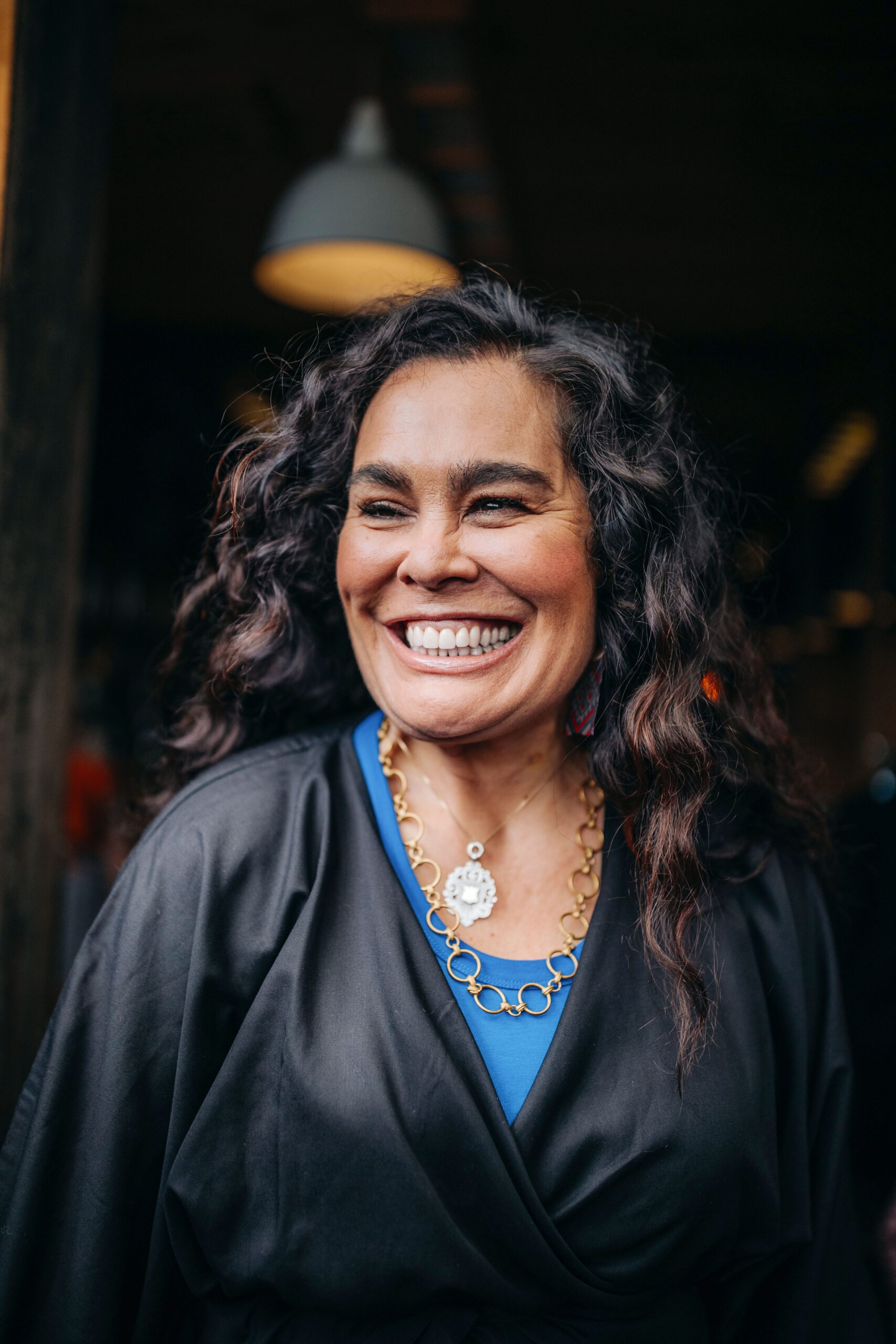
Action woman
This is why, despite being a stalwart and trailblazer in New Zealand’s theatre scene, Rachel has turned her focus to film and TV.
“There seems to be a bit of a struggle to see anything other than the western gaze and I think it’s really important that we tell these stories where people can put themselves in other people’s shoes and see the world how they do. That’s the shift we need to start making true change, and if we do film and television, at least we have a better chance of reaching more people.”
The theatre, she says, “can be a scary place for people to go”. Even Rachel is uncomfortable in that world – one she’s been part of since she was young. The mere mention of it makes her physically shudder.
“I get social anxiety and it’s at its highest when I go to the theatre because there’s so much looking over each other’s shoulders, and ‘Who’s there?’ and pompous conversations that I find unbearable.
“It’s too exclusive, you know? Like, who am I speaking to? Who are we putting this on for? We’re doing it for a very small crowd and if I’m going to have a conversation that I believe in, I’d rather do it where more people are going to see it so they can engage with it. Otherwise, why have the conversation in the first place?”
These new projects have come at a time when Rachel’s finally getting more comfortable with writing and directing; two things which, at first, she lacked confidence in.
“I can certainly tell you that, as a director over the years, I’ve been knocked down a lot, particularly by men and by producers. Heads of theatre companies have knocked me down. I had one guy say to me, ‘You’re a mediocre actor and a mediocre director.’ You try and not let that infiltrate but, unfortunately, it does.”
It’s not the first time she’s had to stand up against naysayers. When Rachel first started acting, she was told categorically – more than once – that she would never be an actress because of the way she looked. To say she proved them wrong is an understatement, and she’ll do the same with directing.
“The emphasis is on being brave,” she says.
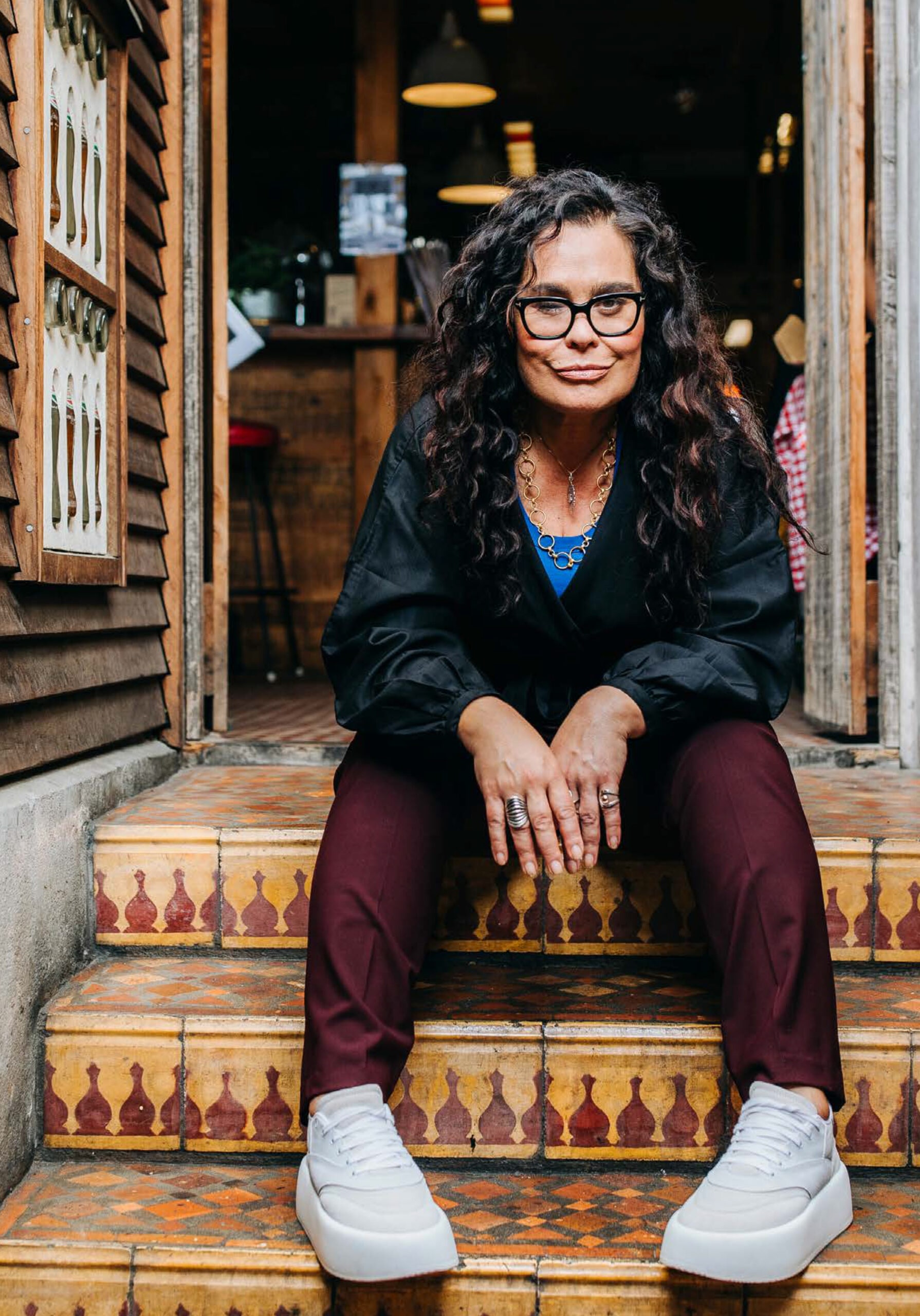
PHOTO CREDIT EMILY CHALK.
“If you can come back from that, it’s extraordinary,” she explains. “I’ve been knocked around enough to kind of have to really pull myself back up.”
One of the worst times was a particularly awful review Rachel received for her performance in a Shakespeare play.
“I was an indigenous woman playing a role that was usually played by a tiny little – usually blond – actor in Shakespeare and the proprietorial Shakespeare critics were not happy. One in particular really tore me down.
“But it’s been great, what’s happening in “the world, because it does feel like finally we’re able to evaluate with some sense of real understanding, what we’ve been through – and you can say it out loud. You can actually look back and go, ‘That wasn’t in my head. That was racism. That was sexism. That was really happening.’”
That’s just one of many promising changes Rachel has seen happening over the years. She says the film and TV industries are really progressing in a way which makes her excited not just for her future, or the future of the industry, but for the younger generations.
“I’m really pleased that things are changing – one step at a time. My only thing is I wish I was younger, and I could enjoy it for longer, because I do think it’s gonna be fascinating how the world shifts and changes. I have so much hope.”

